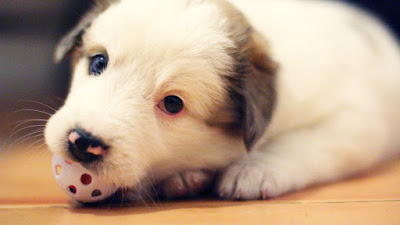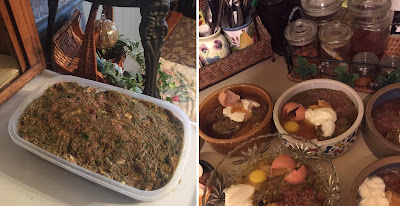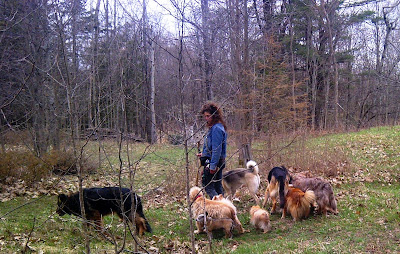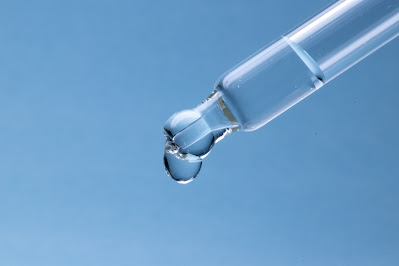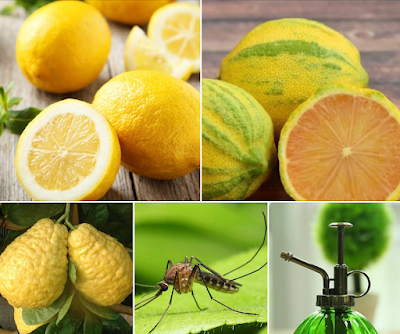How to Potty Train Your Puppy or Dog
When it comes to potty training your puppy or dog the best
approach is a holistic approach that considers all supporting elements.
Get a Routine In-Place to Support Potty Training Your Puppy or Dog
Your puppy's or dog's potting training routine should look similar to this -
Potty breaks times are:
Your puppy's or dog's potting training routine should look similar to this -
Potty breaks times are:
- First thing in the morning
- After every meal , and/or
- After drinking substantial amounts of water
- After playtime
- Mid-day
- Early evening
- Before bedtime
Bedtime - Don’t set Puppy up for Failure
- Puppy needs time for his/her bladder to grow so if you are allowing puppy to drink water an hour or less before bedtime Puppy may not be able to make it through the night
- Restrict water consumption an hour before bedtime
- By doing so you help set your puppy or dog up for potty training success, not failure
After-Meal Routine
- After your puppy or dog eats let him/her outside for a potty training break
- And again 15 minutes after that if he/she did not seem to eliminate the first time
- Offer the next ‘potty break’ a half hour to an hour after that
- Over time elongate this to two or three hours
Be Efficient Rather than Rushed and Anxious
Set a good example:
- If you feel anxious around potty time your dog will acquire the anxiety you are projecting
- You want potty time to be a normal activity not an abnormal one
- Walk to the door calmly, don't anxiously rush to the door
- Remember dogs learn by example just as people do, dogs acquire stress and anxiety just as people do
Don’t Punish Your Dog for having a Potty Training 'Accident'
If
your dog has an ‘accident’ in the house never punish your dog. Doing so
can lead to stress and anxiety for your dog - which will ultimately
lead to additional stress for you. You don’t want your dog to develop
anxiety around eliminating as doing so can lead to an escalation of
behaviour issues and can also cause health issues now and later on in
life.
If Your Dog has an Accident in the House
Understand that the more fuss you make, the more stressful the situation will get, instead…
- Take a big breath - let the tension go. Be mindful, normalize the situation. Put a structure in-place to move through the situation. Don’t let your emotions take over
- Lead, direct, show your puppy or dog out of the space, preferably to take him/her outside (assuming you have a fenced in area, or your dog knows to stay on your property)
- Allow your puppy or dog to stay out while you go back in the house to clean-up their stool or pee
- If you are dealing with a puppy or a rescue dog that is not housebroken take the poop you have just picked up outside
- Place the poop in the area where you want your puppy or dog to use as his/her ‘potty’ area
- Let your puppy or dog sniff the poop (not eat it!)
- Provided your pup or dog does not indulge in Coprophagia you can leave the relocated stool in the designated potty area for a few hours or a day
If Your Dog Goes Out - Comes In and Eliminates in the House
If
your dog goes outside - sniffs about, gets distracted, does not
eliminate (pee or poop), then proceeds to come back in the house and
eliminate - there are multiple possible causes, here are a few examples:
You May Have Let Your Dog or Puppy In Too Soon
If your puppy or dog seems to get distracted when he/she is outside and forgets to do what you have let him/her out to do (eliminate) just relax and leave your pup or dog out for a longer period of time. If your dog or puppy has a habit of escalating to high levels of excitement or fixation he/she may forget to eliminate.
If your puppy or dog seems to get distracted when he/she is outside and forgets to do what you have let him/her out to do (eliminate) just relax and leave your pup or dog out for a longer period of time. If your dog or puppy has a habit of escalating to high levels of excitement or fixation he/she may forget to eliminate.
Prevent Unwanted Excitement and Distraction
Provide structure - make your dog or pup work to go outside
Provide structure - make your dog or pup work to go outside
- Don’t just open the door and allow your dog or pup to run out and do not allow your dog or pup to press his/her self up against the door
- Get his/her attention first, make sure that he/she is calmly sitting or standing away from the door, then make sure he/she is attentive - looking at your eyes, hold the look then indicate to your dog or pup that he/she can go out the door
- You have to normalize the use of the outdoor space in your own mind before your dog can do so.
- If you are anticipating that he/she will not use the outdoors you are creating an altered state of normal around the situation
- If you are not comfortable your dog won’t be either - remember dogs are incredibly insightful when it comes to reading what you are really feeling and communicating
- This means that your dog will literally and logically tune-in what you are emoting
If you want your dog to normalize the natural act of eliminating outside support him/her by normalizing the situation
Freedom - is Good, or Is It?
It's
not if you have not taught your puppy how to handle the freedom. Don't
give a young puppy the run of the house when you don't have time to
supervise and guide puppy.
Who Decides What - Who Runs the House?
If
your dog is ‘house trained’ but ‘likes’ to pee or poop in the house you
have a bigger issue to deal with - your dog runs your household - not
you. To resolve this issue you need to provide leadership to your dog in all areas of daily life. Once you do so properly your dog will stop eliminating in your home.
Insecurity
If
your dog does long walking piddles and pees in your home, pees on the
floor when excited or nervous your dog is simply insecure and needs the
opportunity to have the support required to become a more confident
canine. You need to learn how to better understand, communicate, and
incorporate structure and leadership for your dog.
My Pit Bull x Boxer Robbie is a good example. Robbie
had been abused prior to being surrendered to me. Robbie was
aggressive-reactive and had zero confidence. He would do ‘walking pees’
in the house, typically a trail of urine ten to 15 feet in length. As I
worked with Robbie and built his confidence the ‘walking pees’ became a
thing of the past.
Become a Mindful Observer
A lot of puppies and dogs will tell their human ‘I need to go out’ but if you have not learned to mindfully observe your dog you will not see the ‘ask’. Learning to see beyond casual assumptions is an important part of growing with your dog. Dogs are amazing communicators but if you fall for societal beliefs that say otherwise you will miss many opportunities to understand and respond effectively to your dog.
A lot of puppies and dogs will tell their human ‘I need to go out’ but if you have not learned to mindfully observe your dog you will not see the ‘ask’. Learning to see beyond casual assumptions is an important part of growing with your dog. Dogs are amazing communicators but if you fall for societal beliefs that say otherwise you will miss many opportunities to understand and respond effectively to your dog.
A puppy or dog with heightened sensitivity can become flooded by distractions. A puppy or dog that is experiencing stress and anxiety
may either have ‘accidents’ or avoid going potty at times. Learning to
turn heightened sensitivity into an advantage rather than a deficit is
important for the short and long term health and happiness of your dog.
Building grounded confidence in your puppy or dog by providing
leadership is essential to eliminate stress and anxiety. You need to
learn to communicate effectively and establish a good threshold of true patience within yourself. It is important to understand the common factors that influence dog behaviour so you can avoid pitfalls and leverage your influence the right way.
Diet Matters
Make sure you are feeding your puppy or dog a truly appropriate diet. In regards to the issue of potty training a puppy you want to support ongoing development and optimal function of the brain, digestive and eliminatory system. Make sure your puppy is on a species appropriate diet. If you are feeding your puppy processed dry or canned food, your puppy's diet is not species appropriate and does not support puppy's short and long-term health.
Make sure you are feeding your puppy or dog a truly appropriate diet. In regards to the issue of potty training a puppy you want to support ongoing development and optimal function of the brain, digestive and eliminatory system. Make sure your puppy is on a species appropriate diet. If you are feeding your puppy processed dry or canned food, your puppy's diet is not species appropriate and does not support puppy's short and long-term health.
Size Matters
A small dog’s bladder will take longer to grow than a large-breed dog’s bladder. Be patient and persistent but always be fair and remember that a puppy’s bladder needs time to fully develop.
A small dog’s bladder will take longer to grow than a large-breed dog’s bladder. Be patient and persistent but always be fair and remember that a puppy’s bladder needs time to fully develop.
And that is the scoop on the basics of potty training addressed from a holistic point of view.
Article by Karen Rosenfeld
Holistic Diet, Nutrition, Wellness Services Tailored to Your Individual Dog and Cat
For information about my holistic diet, nutrition, wellness services visit my:
Maintain good health | Address acute and chronic health issues | Pre and post surgery support and recovery
My holistic wellness services are available worldwide via video consultation.
🌎 USA | Canada | UK | Europe | Australia | New Zealand | Asia | South and Central America | Africa | UAE
📱 FaceTime | Facebook | Skype | WhatsApp
Holistic Behavioral Services For Your Dog
For information about my holistic behavioral services visit my:
For dogs of all ages, sizes and breeds
My holistic behavioral services are available locally in-person and worldwide via video session.
🌎 USA | Canada | UK | Europe | Australia | New Zealand | Asia | South and Central America | Africa | UAE
📱 FaceTime | Facebook | Skype | WhatsApp
Affiliations to Companies
✓ None.
✓ I don't sell food or supplements.
✓ I'm not aligned with any companies.
✓ None.
✓ I don't sell food or supplements.
✓ I'm not aligned with any companies.
Article by Karen Rosenfeld
